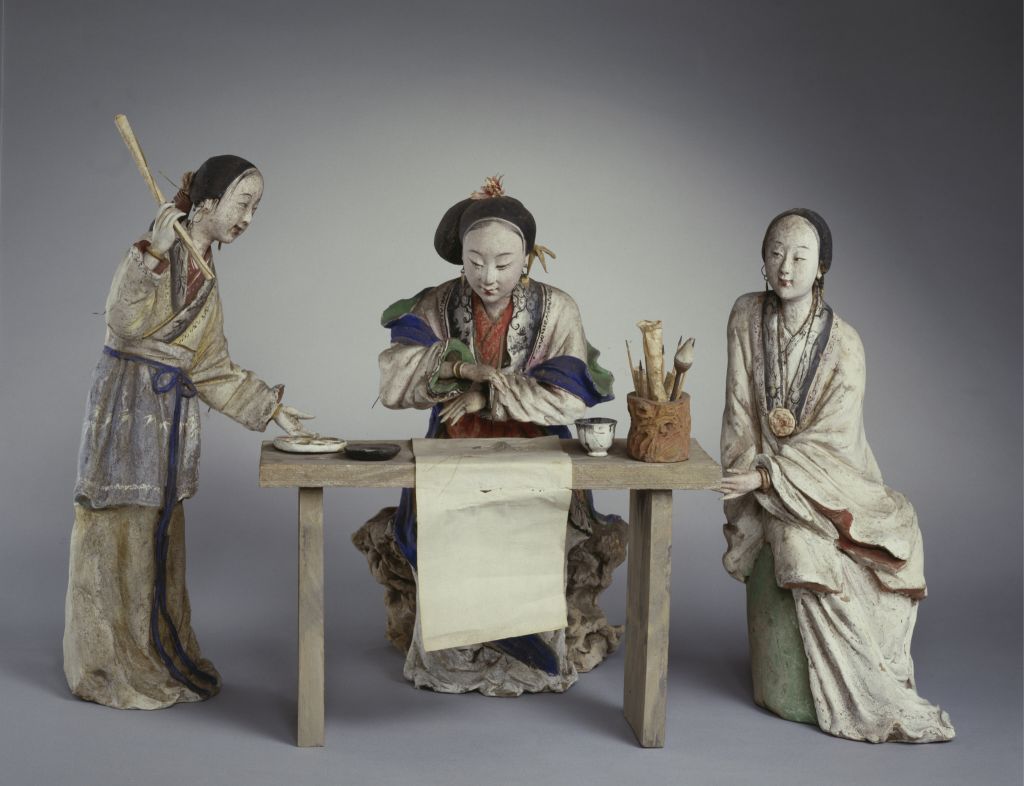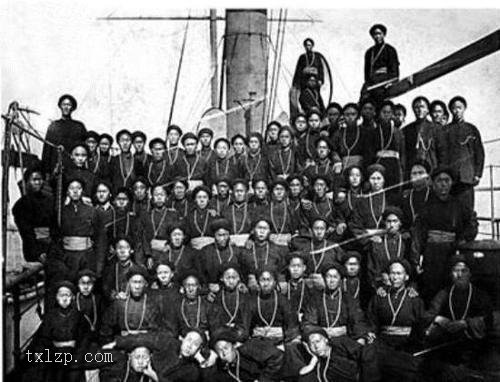In July 1947, Qinghai Ta’er Monastery was named Ta’er Monastery because there was a tower first and then a temple. Ta’er Temple is the Buddhist center in Qinghai Province and northwest China and the holy land of the Yellow Sect. Its main buildings are located on one side of the mountain and the other side of the plateau. There are more than 9300 buildings (including the Great Jinwa Temple, the Great Sutra Hall, Maitreya Hall, the Nine Room Hall, the Flower Temple, the Small Jinwa Temple, Jubazacang, Dingkezacang, Mambazacang, the Great Lalang, the Great Kitchen, and Ruyi Pagoda) on the slopes of the Lotus Mountain, forming a huge complex of Tibetan and Han architecture, It covers an area of 450000 square meters
In the 39th year of Jiajing (1560), Zen Master Renqin Zhejian praised the construction of a quiet room beside the pagoda. In the fifth year of Wanli (1577), 17 years later, Maitreya Hall was built on the south side of the tower. So far, Ta’er Temple has begun to take shape. In the first month of the fortieth year of Wanli (1612), the Xianzong College was officially established to teach scriptures and methods, marking that the Ta’er Temple became a formal monastery of the Gelug Sect
Since the Emperor Kangxi of the Qing Dynasty, the imperial court has given many gifts to the Ta’er Temple, including plaques, ritual instruments, Buddha statues, scriptures, and pagodas. The living Buddha systems of the temple, such as Ajia, Saichi, Lako, Sedo, Xiangsa, Sina and Quexi, were named as Hutuktu or Nomen Khan in the Qing Dynasty. Among them, Ajia, Saichi and Lako are Hutuktu stationed in Beijing, and some of them have also served as palmprint lamas in the Yonghe Temple in Beijing and Mount Wutai in Shanxi. Ta’er Monastery has developed rapidly and become one of the six famous monasteries of Gelug Sect of Tibetan Buddhism at home and abroad
塔尔寺是先有塔,而后有寺,故名塔尔寺。塔尔寺是青海省和中国西北地区的佛教中心和黄教的圣地,主要建筑依山傍塬,分布于莲花山的一沟两面坡上,有大金瓦寺、大经堂、弥勒殿、九间殿、花寺、小金瓦寺、居巴扎仓、丁科扎仓、曼巴扎仓、大拉浪、大厨房、如意宝塔等9300余间(座),组成一庞大的藏汉结合的建筑群,占地面积45万平方米。
嘉靖三十九年(1560年),禅师仁钦宗哲坚赞于塔侧倡建静房1座修禅。17年后的万历五年(1577年),复于塔之南侧建造弥勒殿。至此,塔尔寺初具规模。万历四十年(1612年)正月,正式建立显宗学院,讲经开法,标志着塔尔寺成为格鲁派的正规寺院。
从清康熙以来,朝廷向塔尔寺多次赐赠,有匾额、法器、佛像、经卷、佛塔等。该寺的阿嘉、赛赤、拉科、色多、香萨、西纳、却西等活佛系统,清时被封为呼图克图或诺们汗。其中,阿嘉、赛赤、拉科为驻京呼图克图,有的还当过北京雍和宫和山西五台山的掌印喇嘛。塔尔寺迅速发展,规模越来越大,成为藏传佛教格鲁派蜚声国内外的六大寺院之一。
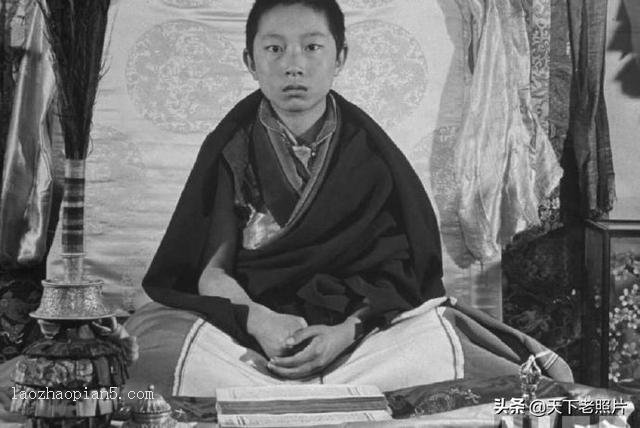
真实的十世班禅
塔尔寺里九岁的班禅.身披僧袍,表情端严。
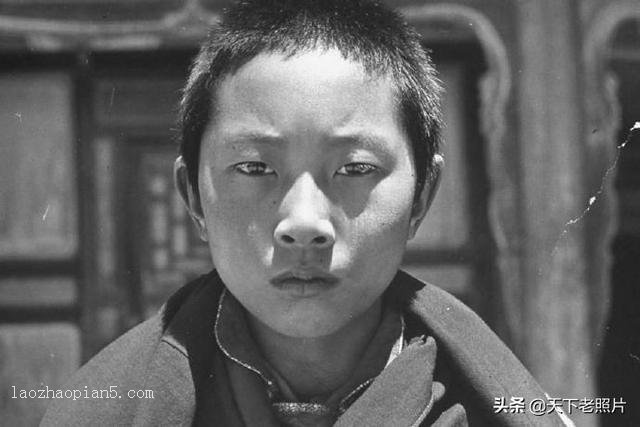
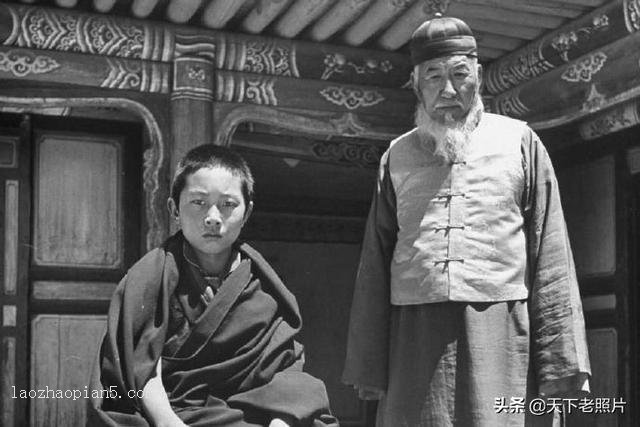
九岁的班禅.身披僧袍,表情端严.旁边的是摄政"Lo Sh'ang Chien Chan."
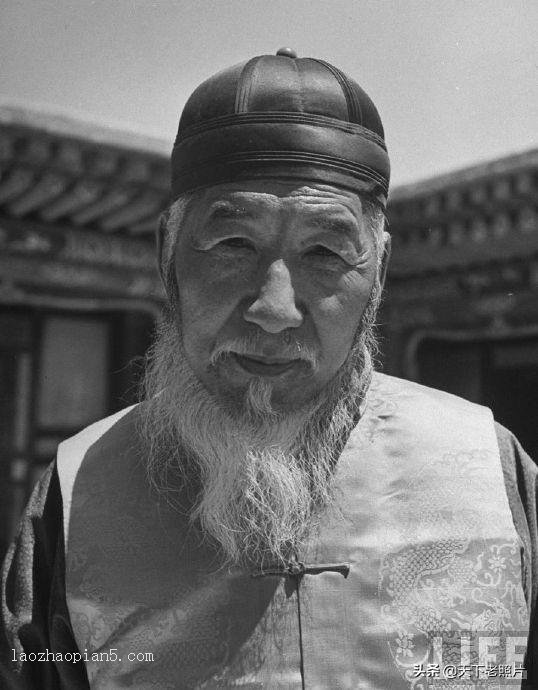
十世班禅的摄政"Lo Sh'ang Chien Chan.".身着中国传统服装,面带微笑,塔尔寺里汉话说得最好的人.
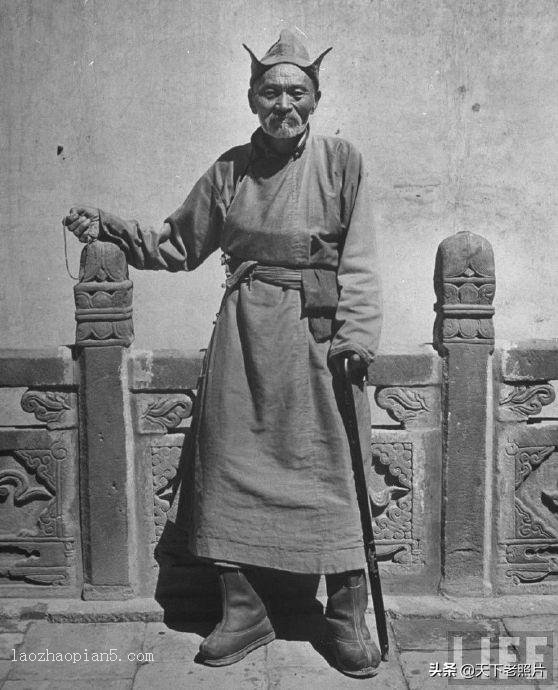
站在塔尔寺外的喇嘛僧.
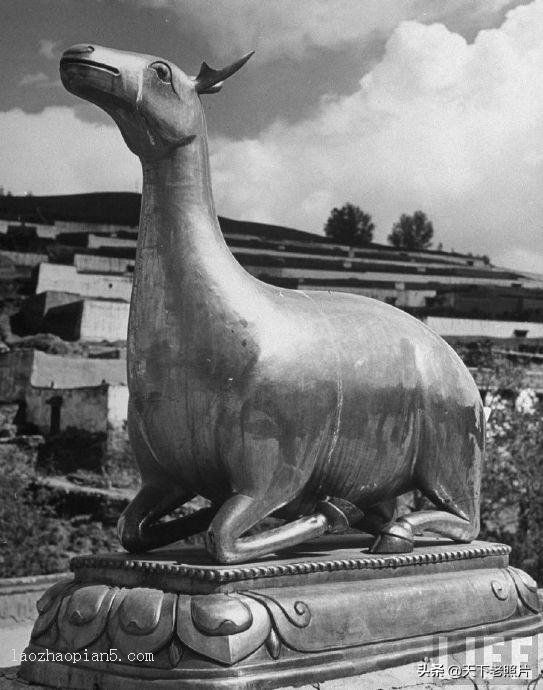
用来装饰塔尔寺屋顶的金鹿,明代藏传佛教僧侣所建造.
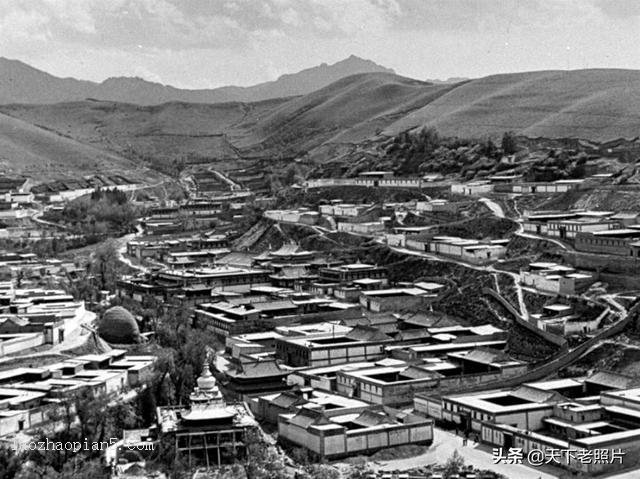
从塔尔寺附近的一处小山丘上拍摄的照片
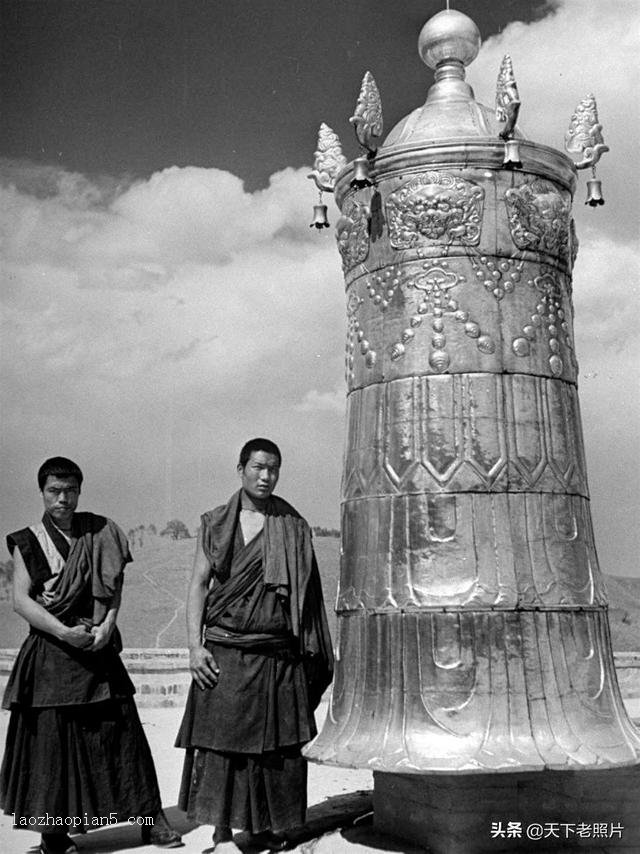
屋顶上的佛教装饰,明代建造.
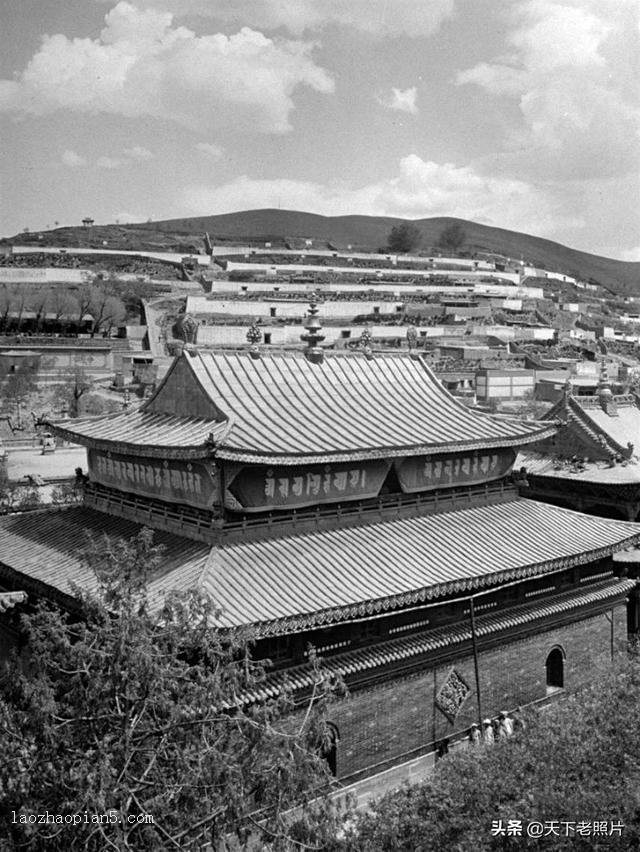
塔尔寺一角
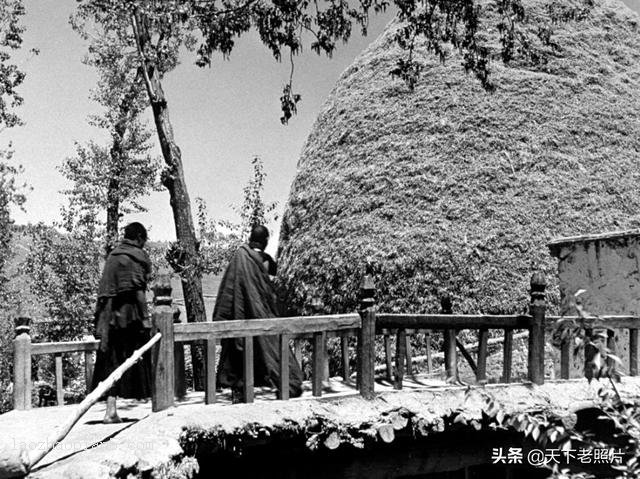
塔尔寺的僧侣
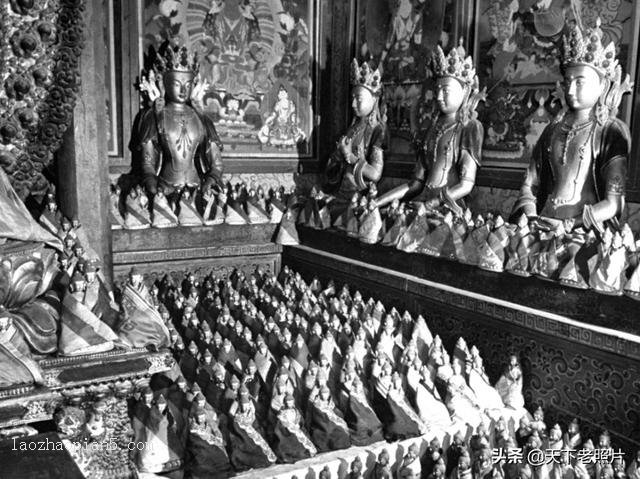
放满了各式大小佛像的佛殿
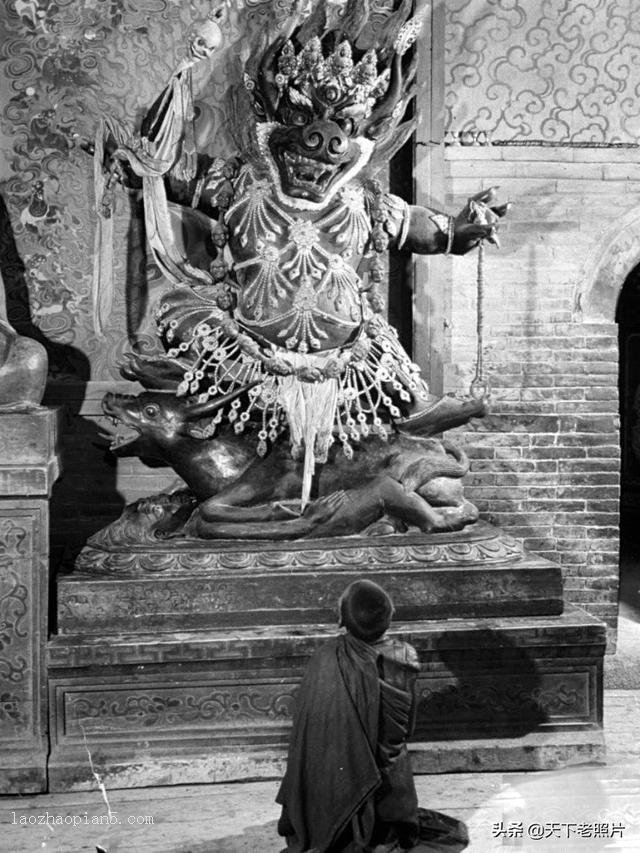
对着佛像跪拜的喇嘛
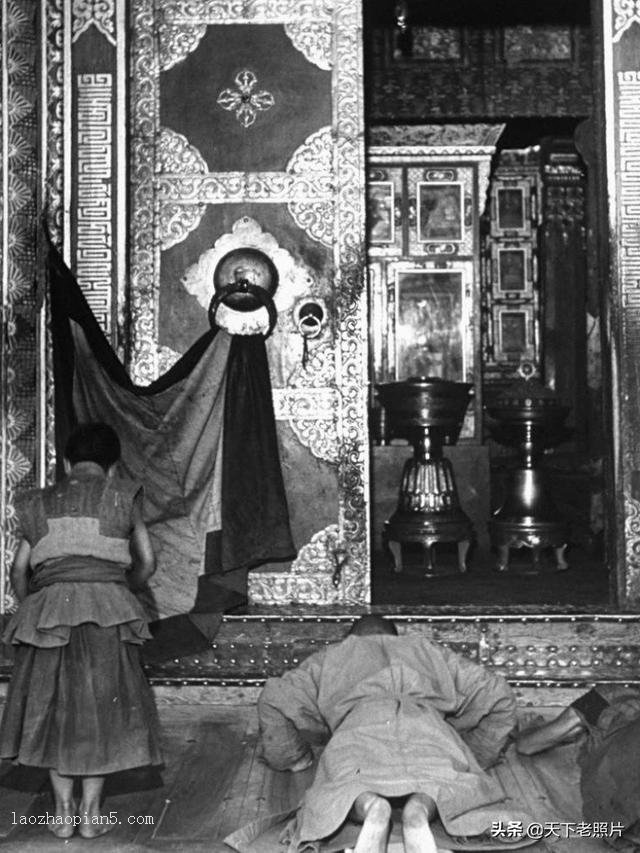
信徒们在塔尔寺祈祷
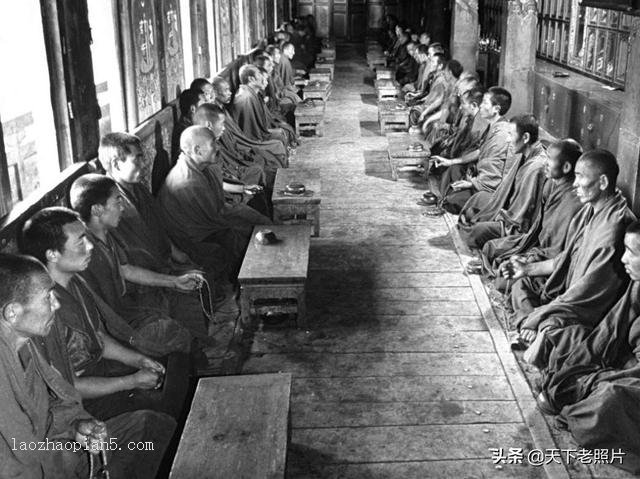
做功课
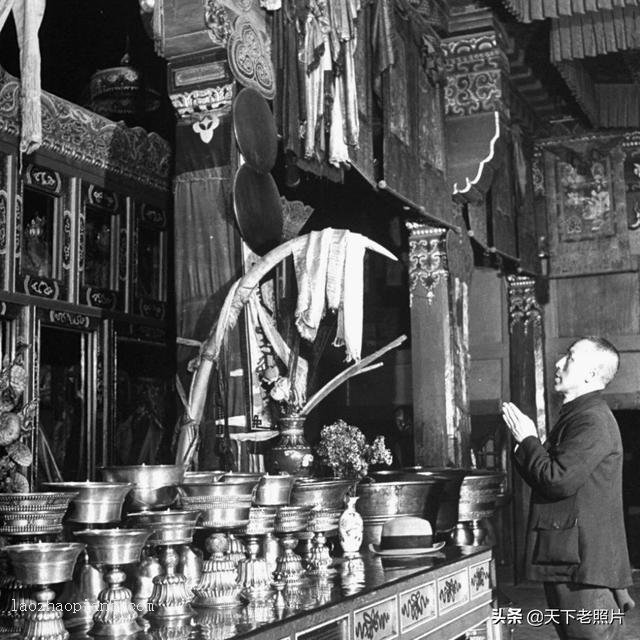
信徒的祈祷
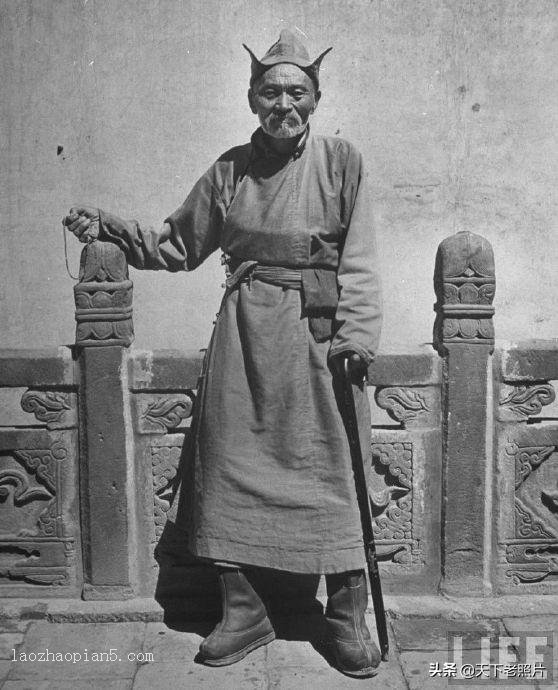
站在塔尔寺外的喇嘛僧.
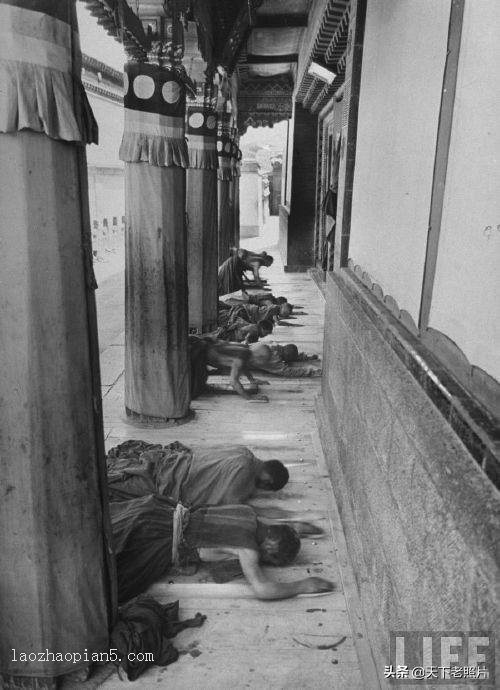
僧侣们在祈祷
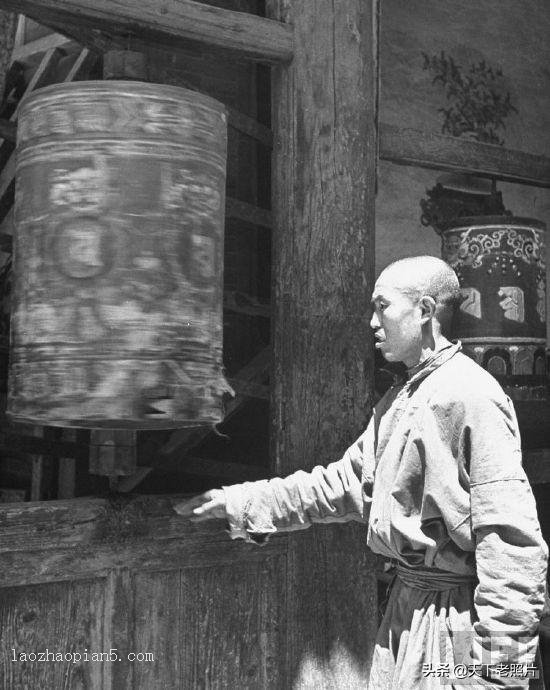
进修的喇嘛僧在转经轮
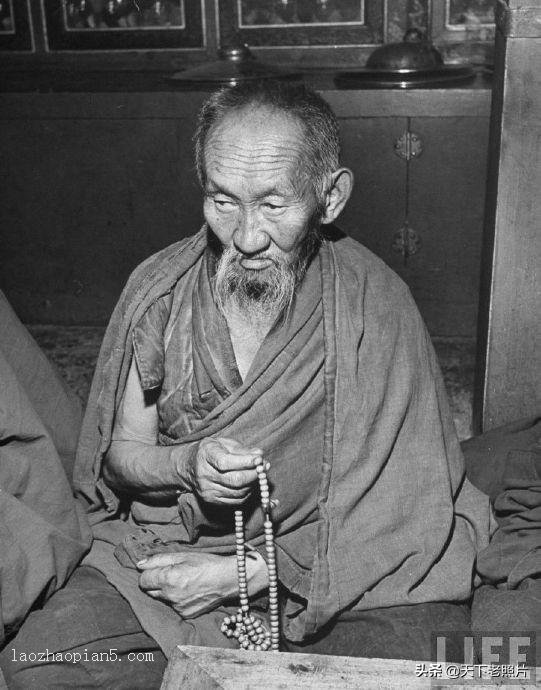
塔尔寺里年迈的喇嘛.
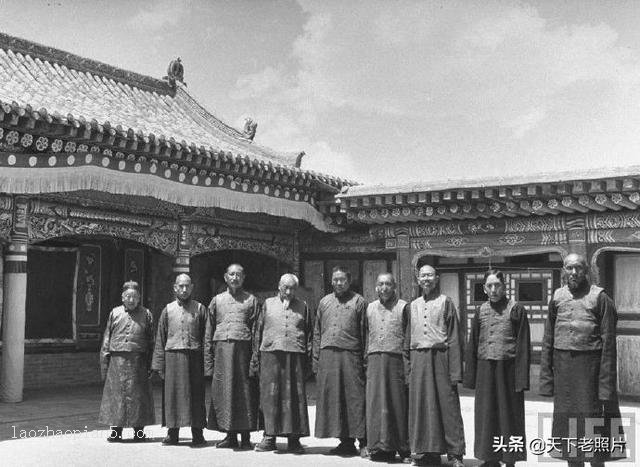
喇嘛们来到户外集体留影
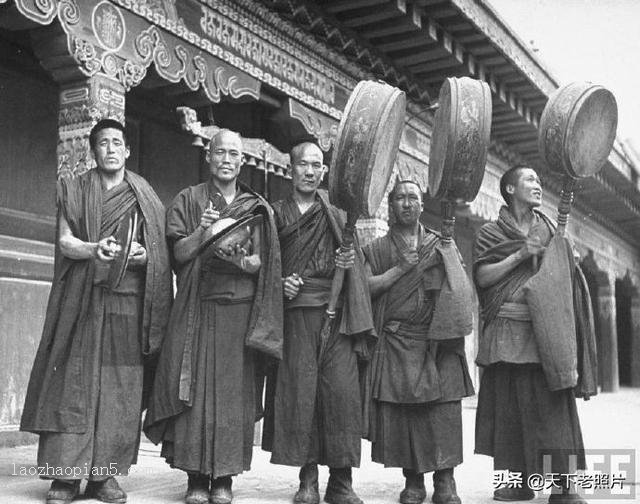
喇嘛们在奏乐
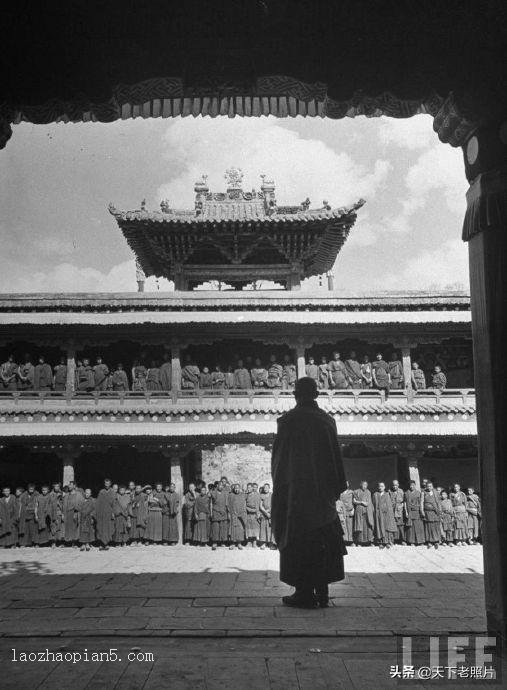
喇嘛们户外集合
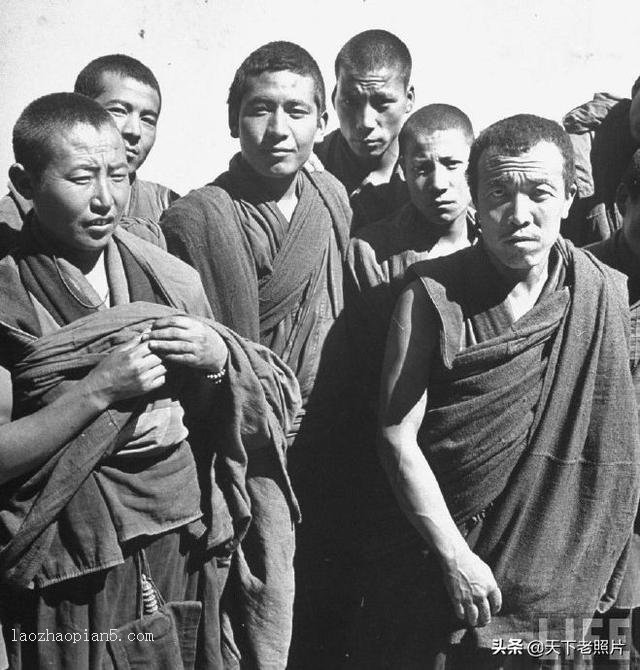
塔尔寺里进修的学生们.
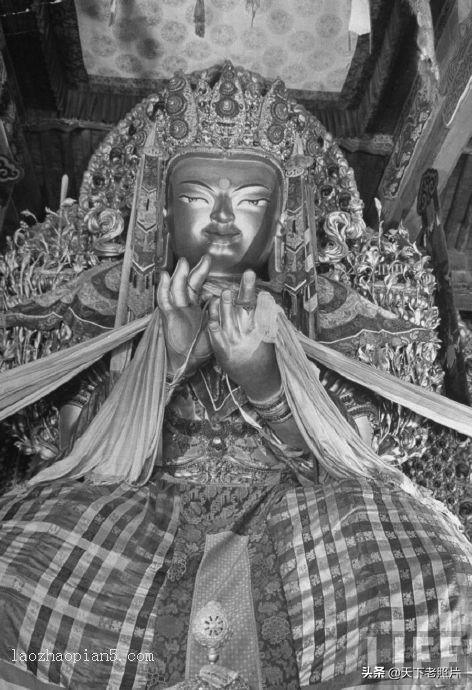
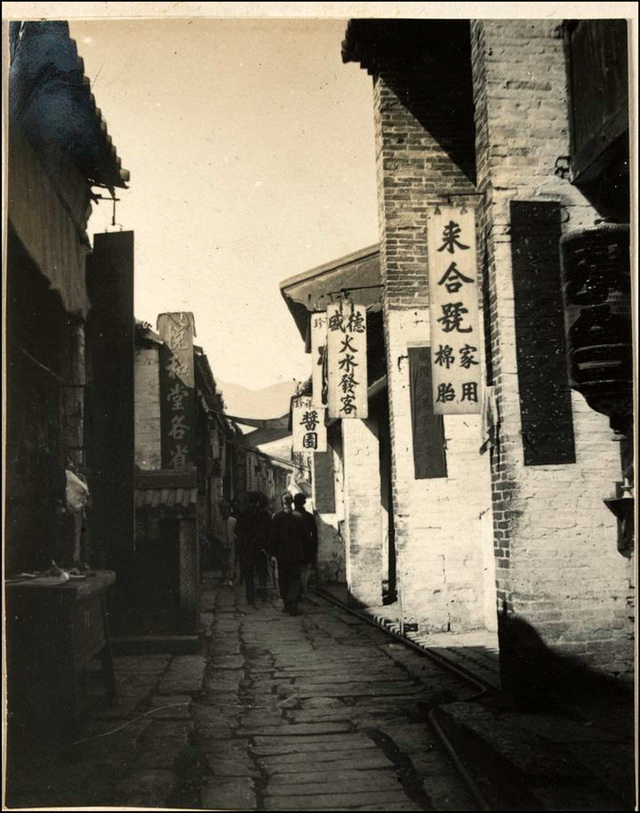
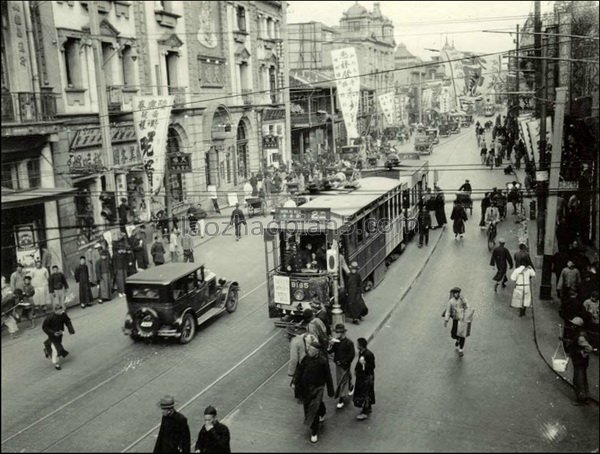
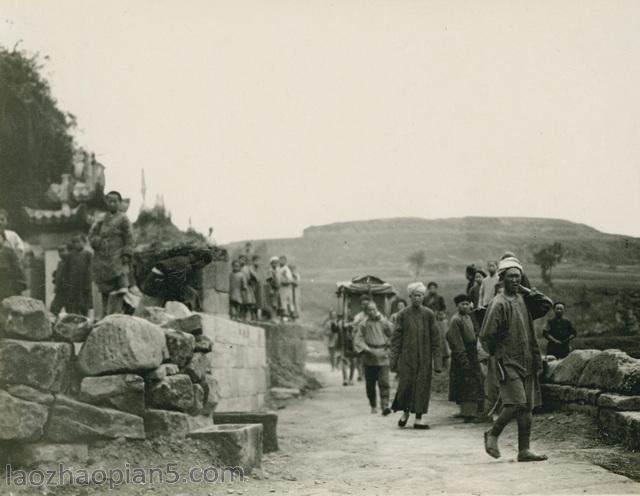
![[Qing Dynasty] British female painter—Elizabeth Keith, using woodblock prints to record China from the late Qing Dynasty to the early Republic of China—1915-China Archive](https://chinaarchive.net/wp-content/uploads/2022/11/image-191x300.png)
